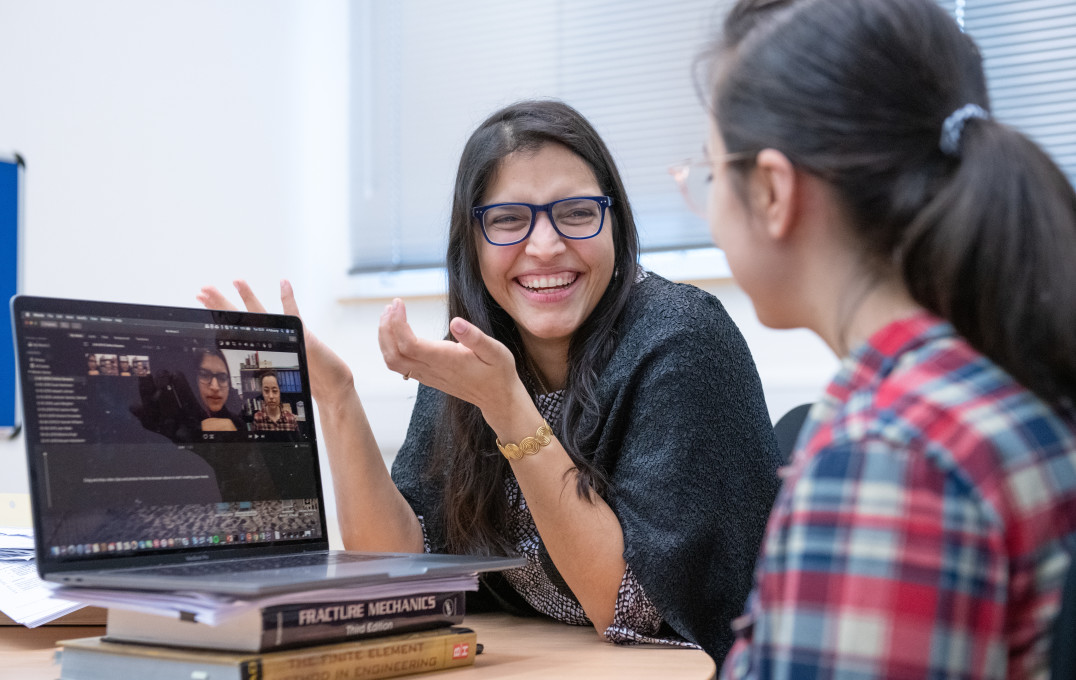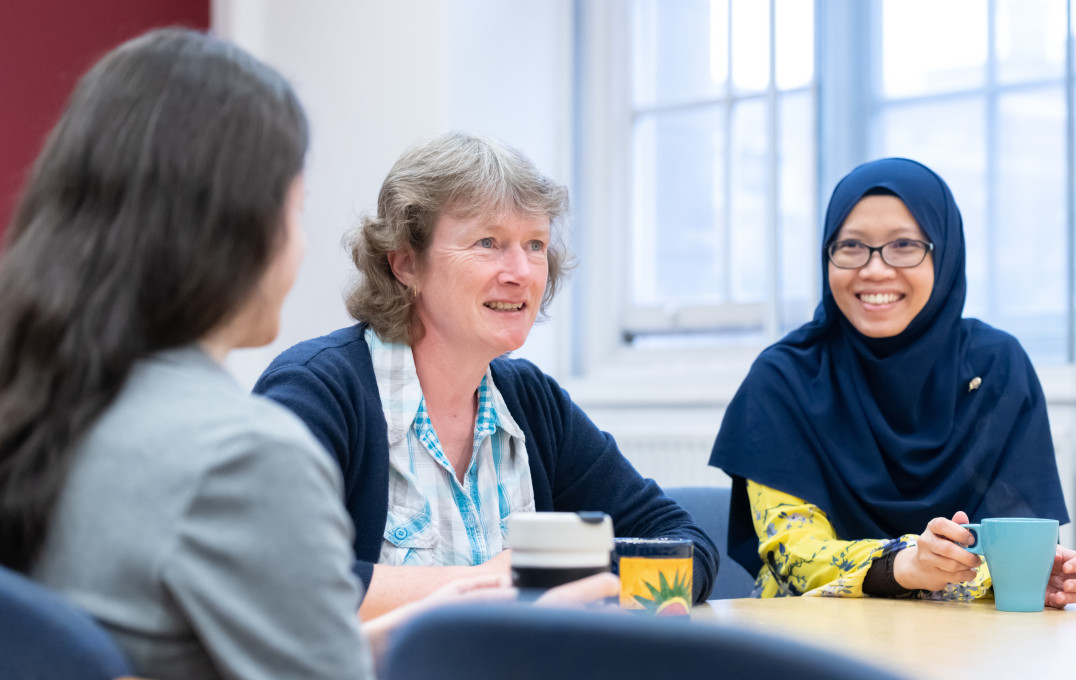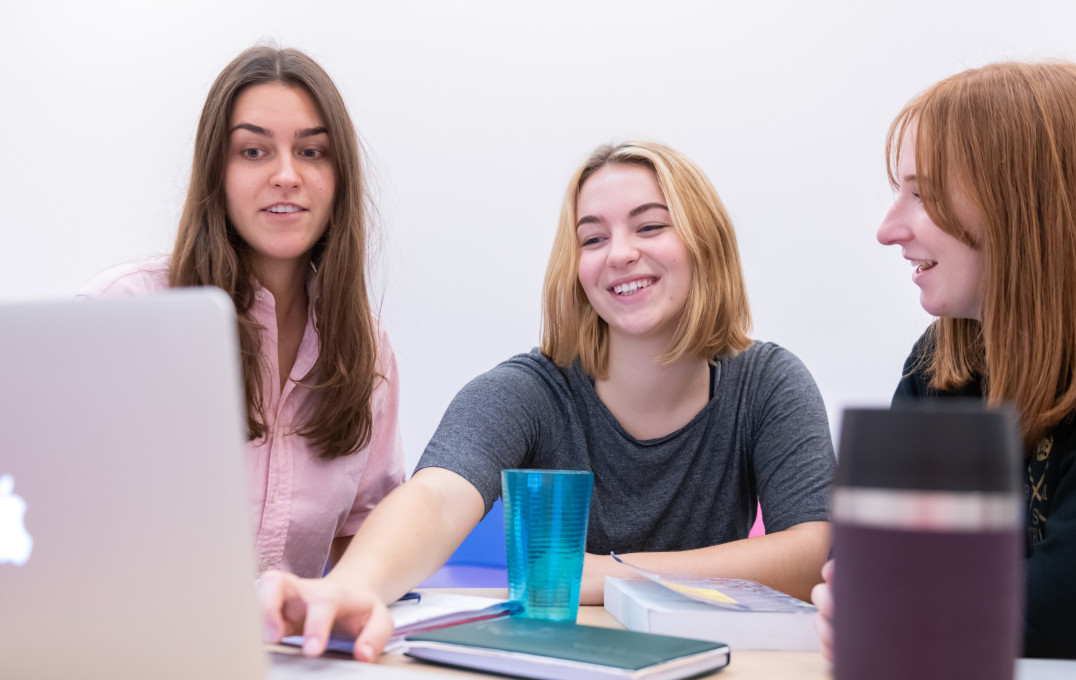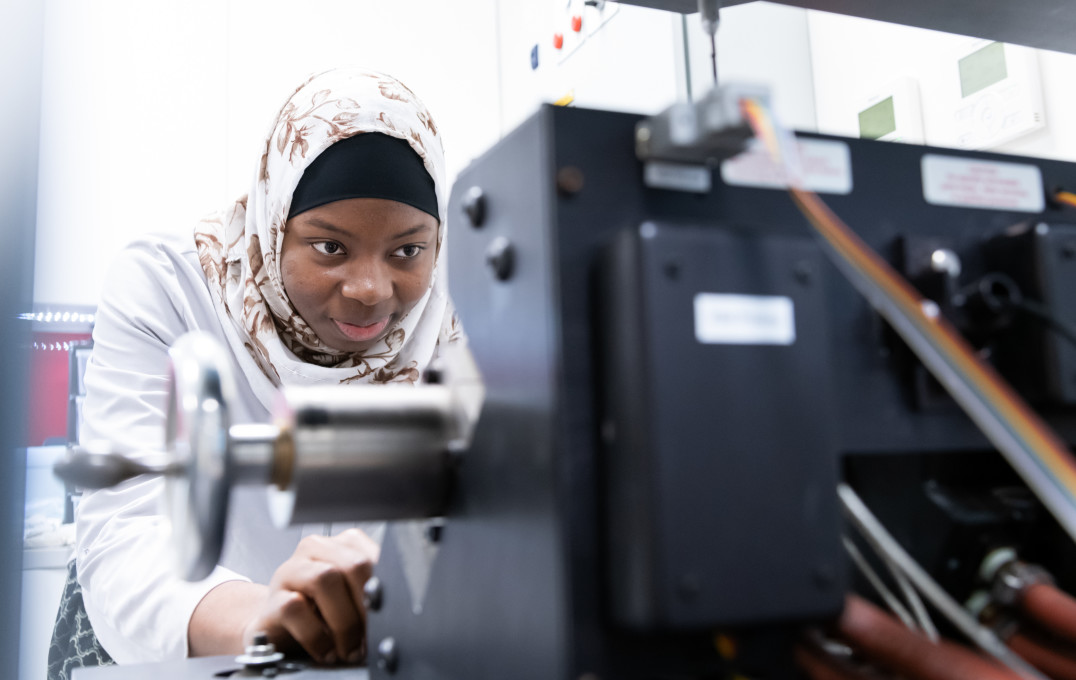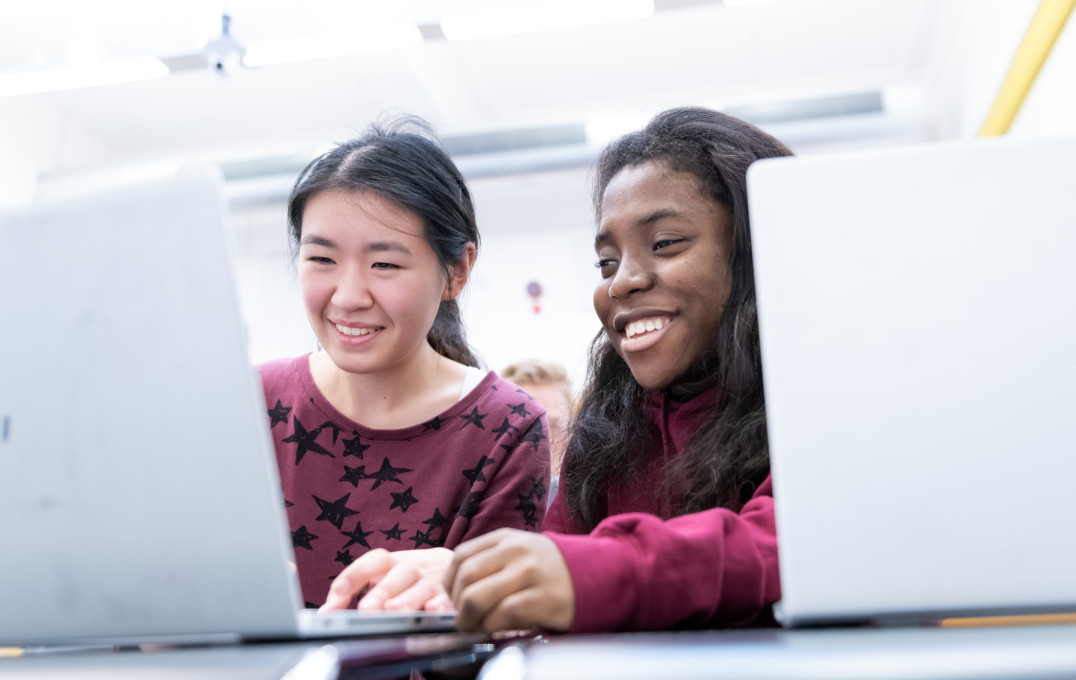ESE community speaks out for International Women’s Day 2022
by Nicky Jenner

The Department of Earth Science and Engineering (ESE) is committed to supporting and amplifying the voices of women in Earth Sciences.
This week, we celebrate Women at Imperial week (7–11 March) and International Women's Day 2022 (IWD; 8 March), a time to celebrate women’s achievements, raise awareness against gender bias, smash stereotypes, and take action for equality.
With this in mind, ESE staff have reflected on the theme of this year’s IWD, #BreakTheBias, and shared what it means to them in terms of diversity, equitability, inclusivity and gender discrimination in Earth Sciences and at ESE.
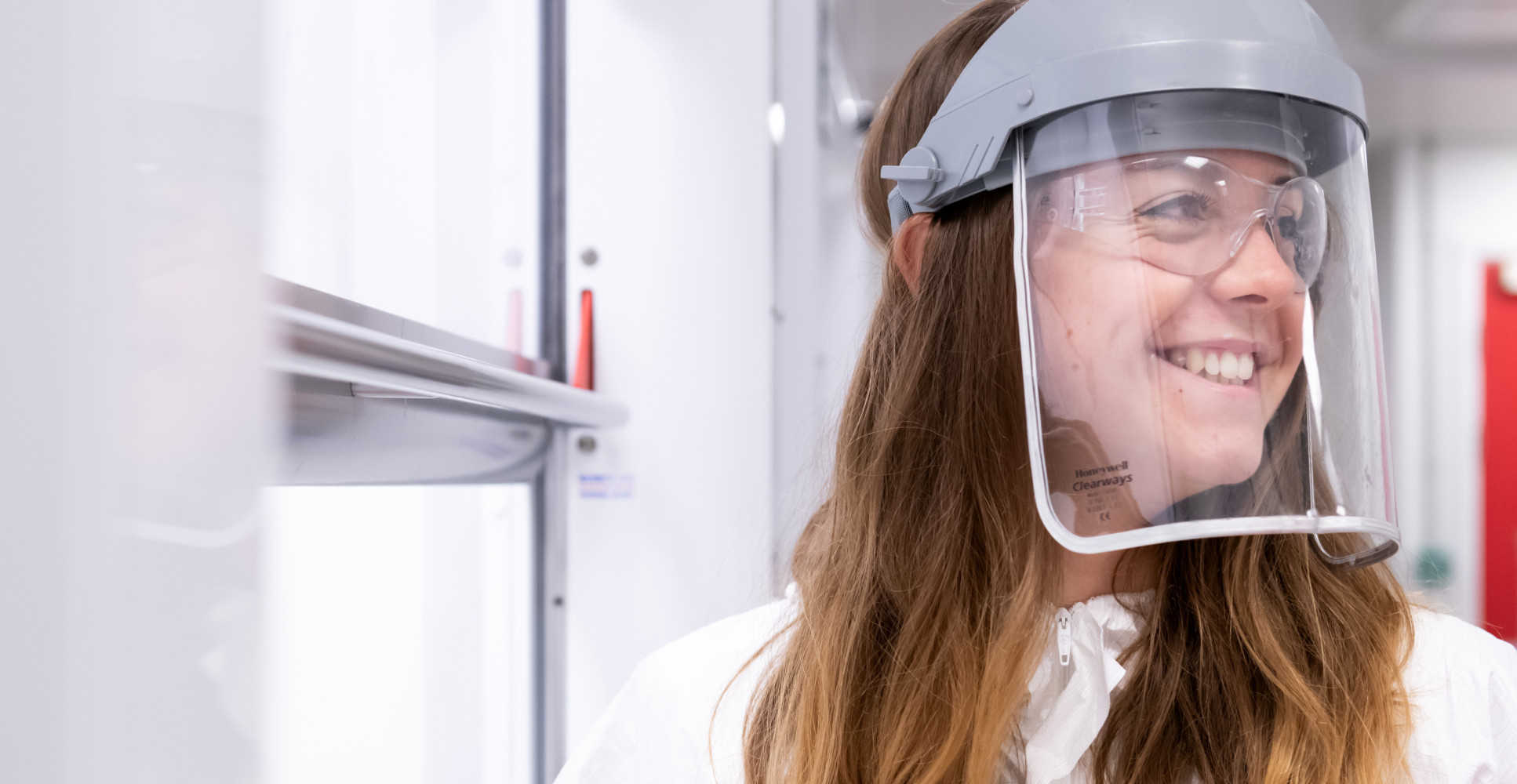
Reflecting on IWD
Professor Tina van de Flierdt, Head of Department
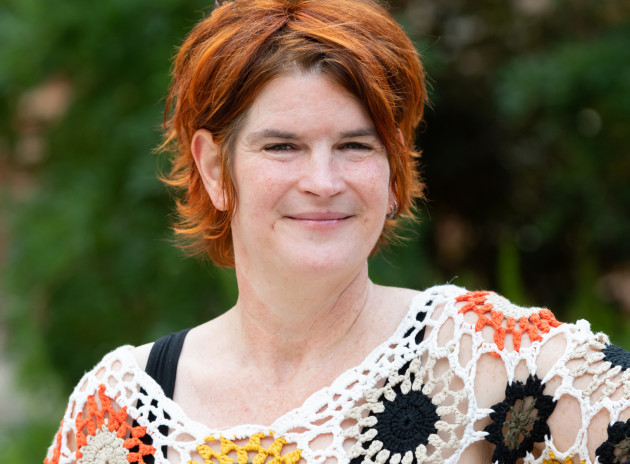 “I have been fortunate and privileged (and maybe more than a little naïve) to have made it through a large part of my early career without experiencing gender bias myself. It’s only since I have been more senior that I’ve become aware of and witnessed gender bias. What can I do? Now, I can be that person that does not look away and does not shy away from calling out others – I owe this to the next generation.
“I have been fortunate and privileged (and maybe more than a little naïve) to have made it through a large part of my early career without experiencing gender bias myself. It’s only since I have been more senior that I’ve become aware of and witnessed gender bias. What can I do? Now, I can be that person that does not look away and does not shy away from calling out others – I owe this to the next generation.
I was an early-career researcher when there were very few female role models around in Earth Science and Engineering. Some were (and are) amazing – others were not. I would advise my younger self not to be judgmental and to listen more carefully; behind every person there is a story, and many stories had to remain hidden away for far too long.
As a field, Earth Sciences has a long way to go to achieve gender equality. But by being the first female Head of the Department of Earth Science and Engineering, I can hopefully give girls and women out there some hope: the sky’s the limit! My advice to others – particularly those in the earlier stages of their STEM studies or careers – is simply to be yourself. There is room in STEM for all of us, and it’s about time STEM fields reflect the diversity of the wonderful people on this planet.”
Dr Lidia Lonergan, Reader in Geotectonics
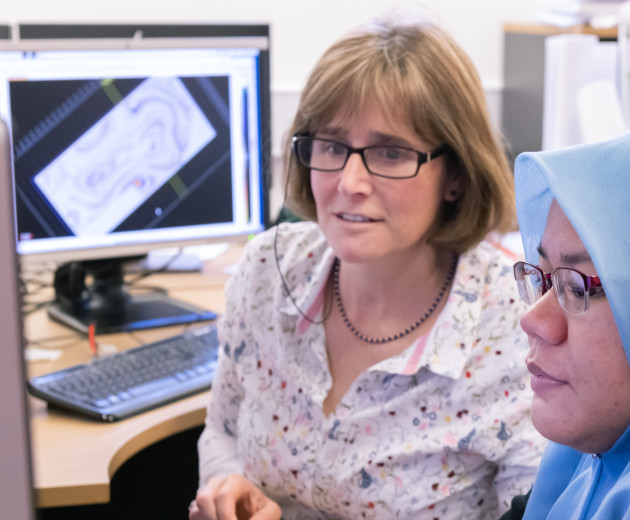 “There are still relatively few women in the Earth Science community. Despite encountering gender bias and discrimination as a senior academic and when working part-time, my advice to my early-career self would be to not change what I have done – I am a confident person and have expected to be treated as an equal by my male colleagues. Largely this has worked! However, I would caution my younger self to be careful about saying ‘yes’ to all activities, particularly those that involve lots of legwork, that women often do well and conscientiously, that take up time, and that are less frequently recognised (administrative roles for conference convening, for example). I would urge others – particularly those in the early stages of their STEM studies or careers – to be confident, to not be afraid of putting yourself forward for positions, and to challenge gender bias where they see and experience it.”
“There are still relatively few women in the Earth Science community. Despite encountering gender bias and discrimination as a senior academic and when working part-time, my advice to my early-career self would be to not change what I have done – I am a confident person and have expected to be treated as an equal by my male colleagues. Largely this has worked! However, I would caution my younger self to be careful about saying ‘yes’ to all activities, particularly those that involve lots of legwork, that women often do well and conscientiously, that take up time, and that are less frequently recognised (administrative roles for conference convening, for example). I would urge others – particularly those in the early stages of their STEM studies or careers – to be confident, to not be afraid of putting yourself forward for positions, and to challenge gender bias where they see and experience it.”
Claire Dilliway, Programme Manager (incl. for INHALE)
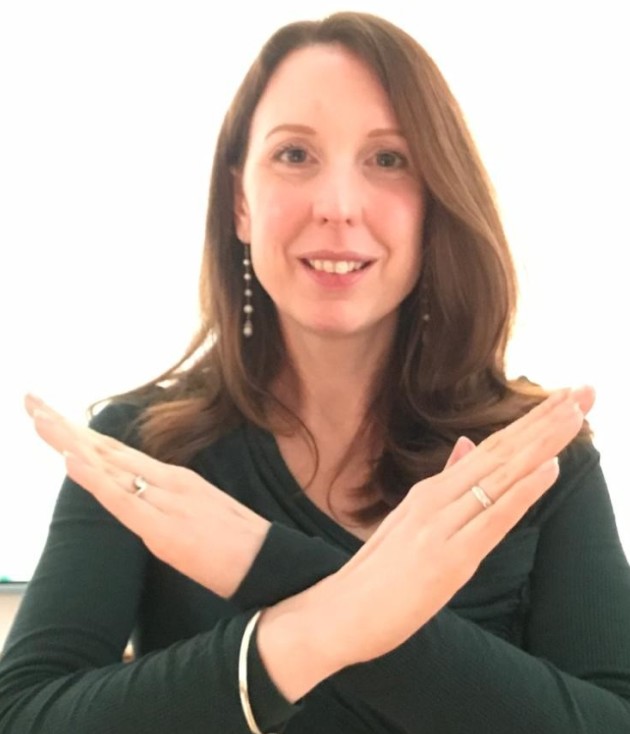 “I really appreciate the positive culture of EDI cultivated by the Department of Earth Science and Engineering (ESE). I feel empowered to speak up against day-to-day instances of gender bias, and my thoughts and concerns have been accepted – and, crucially, acted upon – graciously. This hasn’t been my experience in other workplaces, but I’m hopeful that this positive change is reflective of the wider progress being made across many sectors to #BreakTheBias.”
“I really appreciate the positive culture of EDI cultivated by the Department of Earth Science and Engineering (ESE). I feel empowered to speak up against day-to-day instances of gender bias, and my thoughts and concerns have been accepted – and, crucially, acted upon – graciously. This hasn’t been my experience in other workplaces, but I’m hopeful that this positive change is reflective of the wider progress being made across many sectors to #BreakTheBias.”
Professor Peter Allison (and his daughter Megan!)
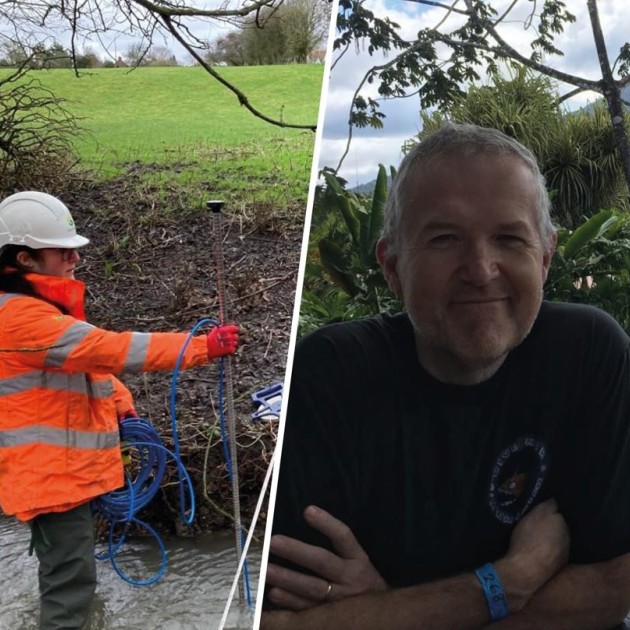 “25 years ago, I had to take my kids to the hospital for some sprain following a fall. I was carrying my daughter and she said, ‘Daddy, when I grow up I want to be a nurse.’ I asked her why she didn’t want to be a doctor, and her response was, ‘Daddy, don’t be silly, doctors are boys and nurses are girls.’
“25 years ago, I had to take my kids to the hospital for some sprain following a fall. I was carrying my daughter and she said, ‘Daddy, when I grow up I want to be a nurse.’ I asked her why she didn’t want to be a doctor, and her response was, ‘Daddy, don’t be silly, doctors are boys and nurses are girls.’
I was shocked because my wife and I had hoped our parenting would speak against this, but I realised that gender stereotyping was pervasive and affecting people I live with without me even realising. Breaking the bias is really important, and tackling stereotyping is a key facet of that process. My daughter is now an environmental geoscientist working in mine-sites around the world… and she delights in challenging stereotypes!”
Paulina Quintanilla, Research Postgraduate
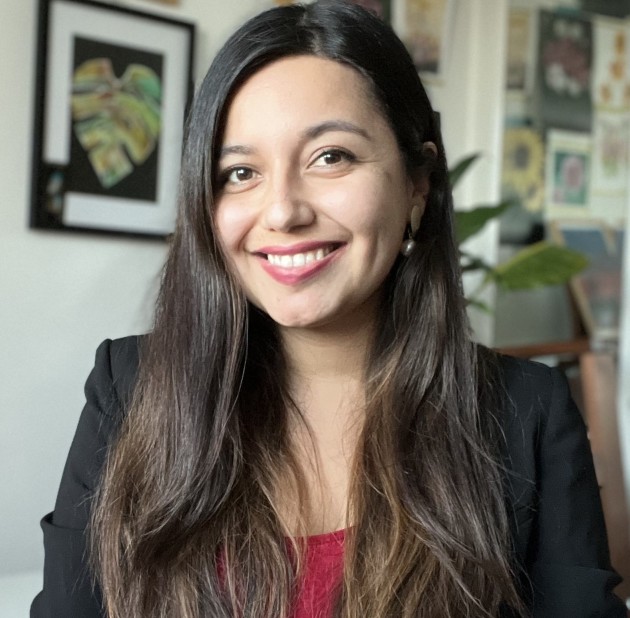 “I’m proud of being a Latin American PhD student at Imperial.
“I’m proud of being a Latin American PhD student at Imperial.
A few years ago, if someone had told me that I could achieve all I have done so far, I would not have believed them. But yes, I could do it, and still can.
Don’t be afraid of dreaming big!”
Emeritus Professor Dick Selley
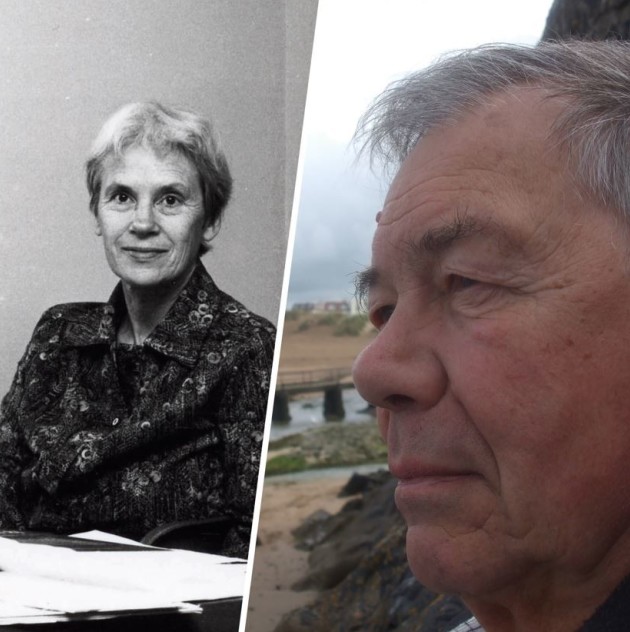 Dick highlights Professor Janet Watson FRS FGS (1923-1985), who “invited me to join her as co-author on what was to be my first contribution to science!” Janet joined the then-Geology department (now ESE) as a student in 1943, and remained a member until her death. Janet was a Vice-President of the Royal Society, the first woman President of the Geological Society of London, author and co-author of several books, and recipient of multiple medals for her exceptional research contributions to the scientific community.
Dick highlights Professor Janet Watson FRS FGS (1923-1985), who “invited me to join her as co-author on what was to be my first contribution to science!” Janet joined the then-Geology department (now ESE) as a student in 1943, and remained a member until her death. Janet was a Vice-President of the Royal Society, the first woman President of the Geological Society of London, author and co-author of several books, and recipient of multiple medals for her exceptional research contributions to the scientific community.
“In 1974 she was the staff choice to be Head of the Geology Department, but she sadly declined the honour,” adds Dick. “Janet was a role model for all women staff and students, and truly encapsulates the IWD 2022 theme of #BreakTheBias.”
Dick also highlights a couple of other eminent and renowned women geologists connected to ESE:
- Professor Jane Plant CBE FRAE (1945-2016), an environmental geochemist. Jane spent much of her career with the British Geological Survey but was Professor of Geochemistry at Imperial College London from 2005 until her death in 2016.
- Rachel Workman, later MacRobert (1899-1985), was a postgraduate researcher at the then-Geology department (now ESE) in 1912 and one of the first women to be elected as a Fellow of the Geological Society in 1913.
Arianna Olivelli, Research Postgraduate
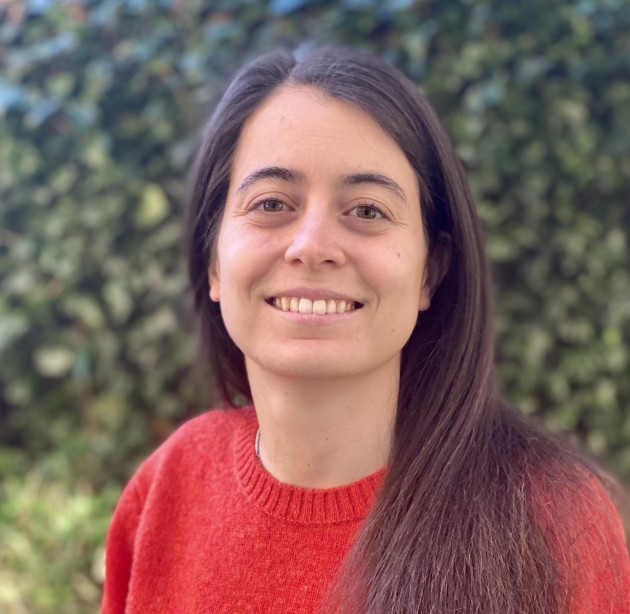 “As a child, I never thought being a girl could be a limit to any career path – it was only when I started my studies in Geology and then Oceanography that I realised how much female representation matters.
“As a child, I never thought being a girl could be a limit to any career path – it was only when I started my studies in Geology and then Oceanography that I realised how much female representation matters.
For this reason, I am committed to advocating against gender bias and discrimination to ensure that all girls and women can identify role models and follow their dream career in science.”
Dr Becky Bell, Senior Lecturer
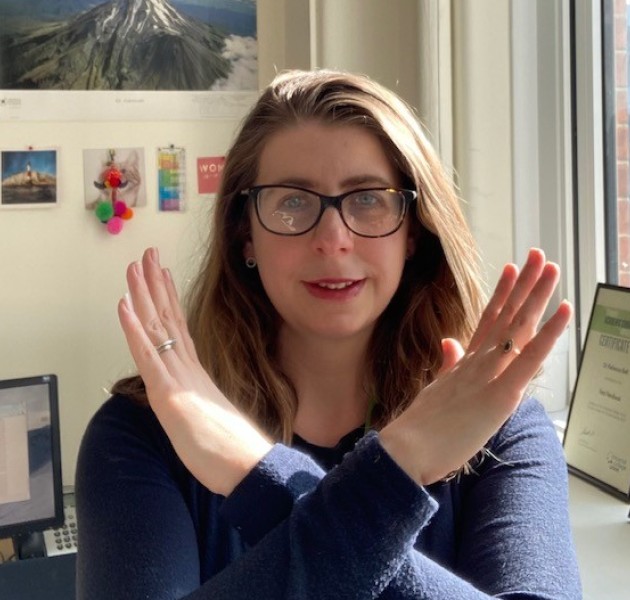 “As a student and early career researcher I have on occasion been described by men in presentations as “too shrill”, in meetings as “too bossy”, and by fellow interview candidates as “much more likely to get the job as there will be bias against white men”. It was not until I began speaking to more senior mentors, both men and women, that I realised comments like these are gender discrimination and I should not have to tolerate it. I would encourage my younger self to seek trusted people as mentors to offer advice and be a sounding board to discuss any incidents. I have always found the ESE environment very supportive and many of my negative experiences involve people external to ESE. I am pleased to now be in a position as co-chair of ESE’s Athena SWAN Self-Assessment Team to affect change and make things even better for the next generation of women scientists.
“As a student and early career researcher I have on occasion been described by men in presentations as “too shrill”, in meetings as “too bossy”, and by fellow interview candidates as “much more likely to get the job as there will be bias against white men”. It was not until I began speaking to more senior mentors, both men and women, that I realised comments like these are gender discrimination and I should not have to tolerate it. I would encourage my younger self to seek trusted people as mentors to offer advice and be a sounding board to discuss any incidents. I have always found the ESE environment very supportive and many of my negative experiences involve people external to ESE. I am pleased to now be in a position as co-chair of ESE’s Athena SWAN Self-Assessment Team to affect change and make things even better for the next generation of women scientists.
Dr Carol Halsall, Senior Teaching Fellow
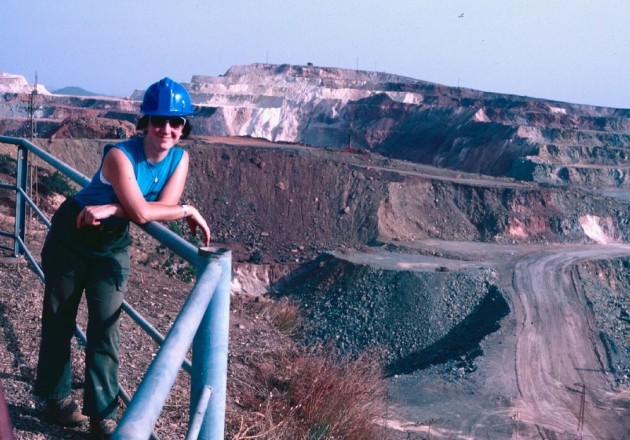 “I started out in the mining industry over 30 years ago. Back when I was completing my PhD fieldwork in Spain in 1988 (pictured left), I was unable to join my male colleagues after work in the company ‘club’ as women were barred, and I had to sit with my colleagues’ female partners at corporate functions. Back at the Royal School of Mines, a handful of female students were discouraged from attending careers presentations as companies were still able to exclude women from their graduate programmes (legislation still banned women from working underground in many countries). I mention this to highlight that we have come a long way in terms of diversity in the workplace in the past 30 years – but it’s important to keep the momentum going and support everyone to reach their potential without fear of discrimination."
“I started out in the mining industry over 30 years ago. Back when I was completing my PhD fieldwork in Spain in 1988 (pictured left), I was unable to join my male colleagues after work in the company ‘club’ as women were barred, and I had to sit with my colleagues’ female partners at corporate functions. Back at the Royal School of Mines, a handful of female students were discouraged from attending careers presentations as companies were still able to exclude women from their graduate programmes (legislation still banned women from working underground in many countries). I mention this to highlight that we have come a long way in terms of diversity in the workplace in the past 30 years – but it’s important to keep the momentum going and support everyone to reach their potential without fear of discrimination."
Dr Rossella Arcucci, Lecturer
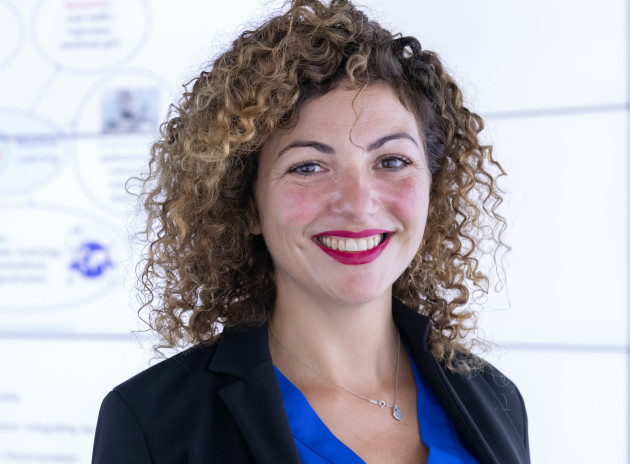 “My PhD supervisor was a 70-year-old Professor, and I was his last PhD student. During our meetings and brainstorming, he used to say: ‘You are not a student and do not have a particular gender right now; we are just two brains working for science’. Since then, when I have a meeting, I just focus on the ‘brains’.”
“My PhD supervisor was a 70-year-old Professor, and I was his last PhD student. During our meetings and brainstorming, he used to say: ‘You are not a student and do not have a particular gender right now; we are just two brains working for science’. Since then, when I have a meeting, I just focus on the ‘brains’.”
Professor Anna Korre
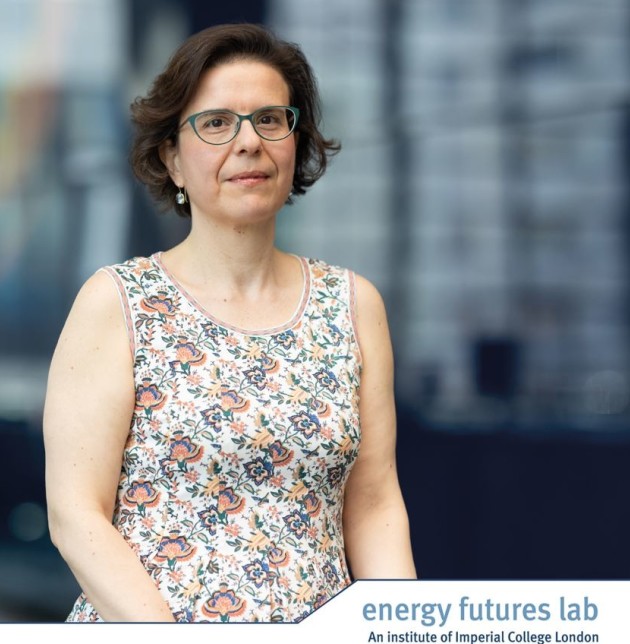 “I remember gender bias being an issue in my life and work forever – ever since I was a little girl growing up in Athens, Greece – and I’ve felt the pain regularly in my career for over 28 years now. I have chosen to keep a positive spirit and stay optimistic, trusting that I can overcome the difficulties and obstacles regularly appearing in my career and life. To my younger self, I would say to never doubt you can overcome bias and discrimination, and to always hope – and I would urge everyone to follow the same path: do your very best every time, know and trust yourself, and stay positive!”
“I remember gender bias being an issue in my life and work forever – ever since I was a little girl growing up in Athens, Greece – and I’ve felt the pain regularly in my career for over 28 years now. I have chosen to keep a positive spirit and stay optimistic, trusting that I can overcome the difficulties and obstacles regularly appearing in my career and life. To my younger self, I would say to never doubt you can overcome bias and discrimination, and to always hope – and I would urge everyone to follow the same path: do your very best every time, know and trust yourself, and stay positive!”
Addressing gender equality
The aims of initiatives such as IWD align closely with ESE’s work to advance the careers of women and address gender equality. This is reflected in our ongoing efforts under Advance HE’s Athena Swan Charter, for which ESE was awarded a Bronze Award in September 2021.
“We’re taking action to address unequal gender representation in academia and higher education, by prioritising gender equality in ESE and working to develop our departmental culture so we can truly empower female staff and students to study and work,” says Katharina Kreissig, co-chair of ESE’s Athena Swan Self-Assessment Team.
“Our efforts hit every level of ESE – from prospective undergraduates up to the Head of Department, across research, academic, and Professional Services staff – as we push for improvement in how we support women in ESE.”
ESE also offers a number of scholarships to support women on its MSc programmes, and has grants available for ESE students and postdoctoral researchers wanting to deliver an activity or session to a school to encourage women and girls into Science and Engineering.
Article text (excluding photos or graphics) © Imperial College London.
Photos and graphics subject to third party copyright used with permission or © Imperial College London.
Reporter
Nicky Jenner
Department of Earth Science & Engineering
